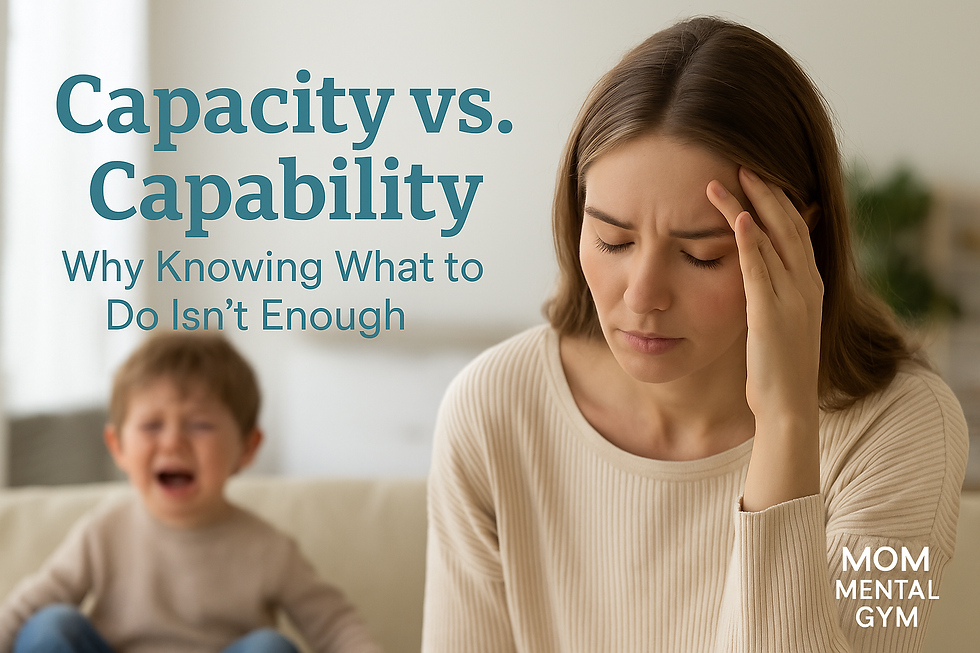The Healing Power of Forgiveness: Transforming Your Health and Well-being
- Jul 19, 2023
- 3 min read

As mothers, we often find ourselves carrying heavy emotional burdens, grappling with guilt, and harboring grudges against ourselves and others. These negative emotions can have a profound impact on our health and overall well-being. In this post, we will explore how holding onto grudges and bitterness can destroy our health and discuss the transformative power of forgiveness. Drawing upon examples, analogies, and research, we will uncover the healing power of forgiveness and offer hope to those struggling to forgive themselves and others.
The Weight of Grudges and Bitterness: Holding onto grudges and bitterness is akin to carrying a backpack filled with rocks on a long and arduous journey. The weight of these negative emotions burdens our hearts and minds, impacting our physical health in ways we may not even realize. Studies have shown that prolonged anger, resentment, and hostility can lead to a variety of health issues, including increased blood pressure, heart disease, weakened immune system, and even chronic pain.
An Analogy: Poisoning Our Own Well: Imagine a well that provides water for you and your family. Now, picture pouring poison into that well day after day. Eventually, the water becomes contaminated, affecting everyone who drinks from it. Similarly, when we hold onto grudges and bitterness, we poison our own emotional well-being. We subject ourselves to constant stress, negative thinking, and toxic emotions that seep into every aspect of our lives, including our physical health.
The Science of Forgiveness: Research has shed light on the transformative power of forgiveness. Studies have shown that forgiveness can have a profound impact on our health and well-being. When we forgive, we experience lower levels of stress, reduced blood pressure, improved heart health, enhanced immune function, and increased overall happiness. Forgiveness acts as a release valve, easing the burden on our minds and bodies, allowing us to heal and move forward.
Forgiving Others: Breaking the Cycle: Forgiving others does not mean condoning their actions or forgetting the pain they may have caused. It is a conscious decision to release ourselves from the emotional chains that bind us. Holding onto grudges and bitterness only perpetuates a cycle of negativity and suffering. By forgiving others, we break free from that cycle, granting ourselves the freedom to heal and grow.
Forgiving Ourselves: Embracing Imperfection: Mothers often carry a heavy load of guilt and self-blame. We constantly question our decisions and actions, berating ourselves for perceived shortcomings. However, self-forgiveness is essential for our well-being. It allows us to acknowledge our imperfections, learn from our mistakes, and embrace our growth. By forgiving ourselves, we can cultivate self-compassion, nurture our mental health, and become better versions of ourselves for our children.
Steps towards Forgiveness:
Step 1: Become aware of your emotions. Take a moment to acknowledge and accept your feelings.
Step 2: Process it in your body. Connect with your physical sensations and allow yourself to fully experience and observe them without judgment.
Step 3: Listen without judgment to the thoughts causing the hurt. Give yourself space to hear the narratives and beliefs surrounding the situation without attaching criticism.
Step 4: Own those emotions and take accountability for them. Recognize that your reactions and emotions are your own responsibility.
Step 5: Question with empathy/Loosen your belief. Challenge your beliefs and assumptions, and try to see the situation from a different perspective. Practice empathy towards yourself and others involved.
Step 6: Move forward and embrace forgiveness. Make a conscious decision to release the burden and begin your healing journey. Remember, forgiveness doesn't mean forgetting or condoning but choosing to let go.
As mothers, forgiving ourselves and others is not only an act of compassion but a significant step towards better health and overall well-being. By understanding the detrimental effects of holding onto grudges and bitterness, we can choose the path of forgiveness, allowing for personal growth, inner peace, and liberation. (Would you like to learn more about research done on forgiveness? Study Fred Luskin's work, or read his book, Forgive for Good.)



Comments